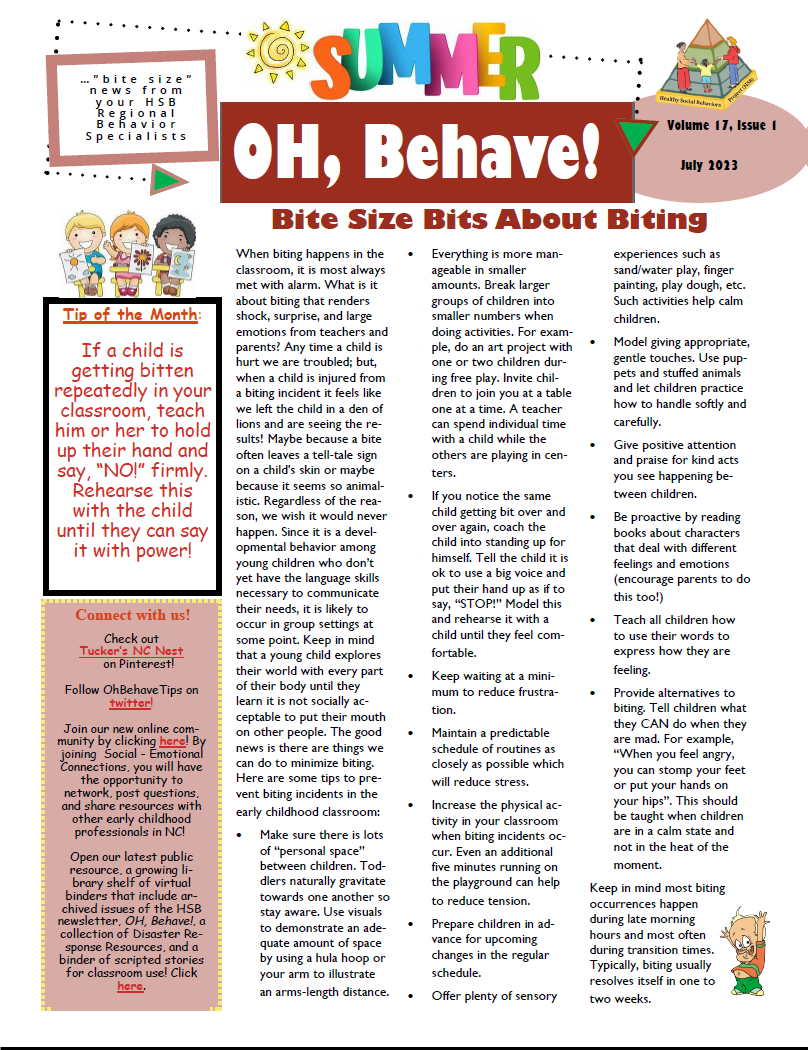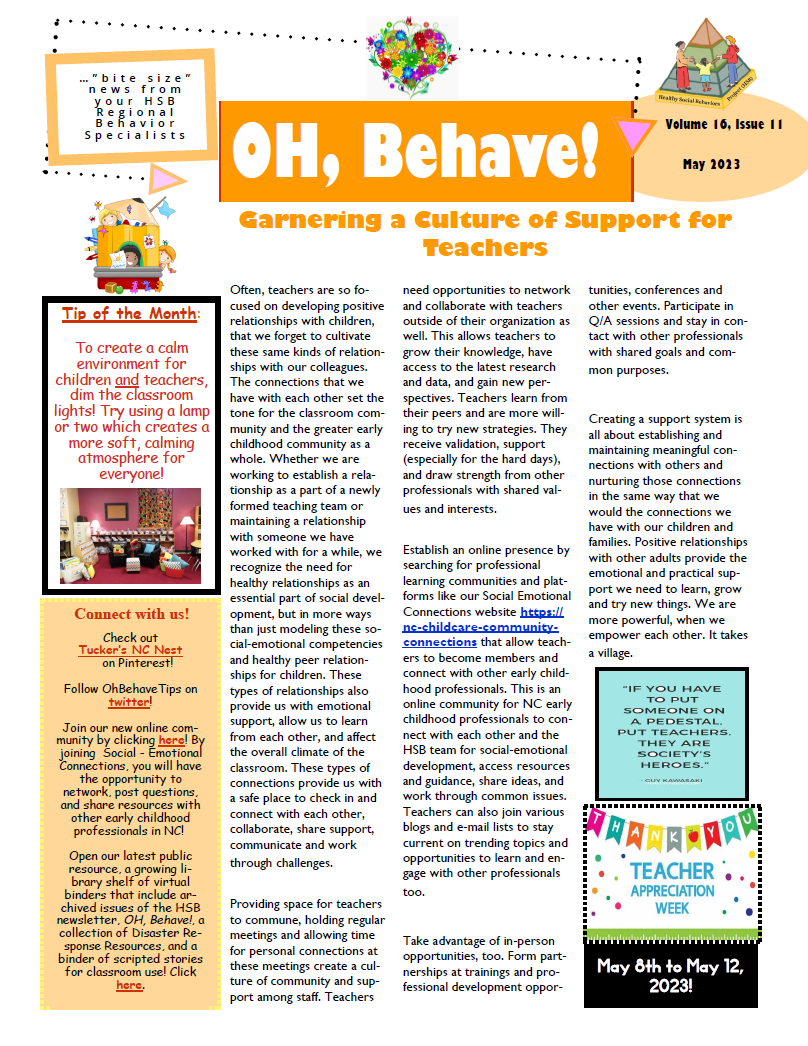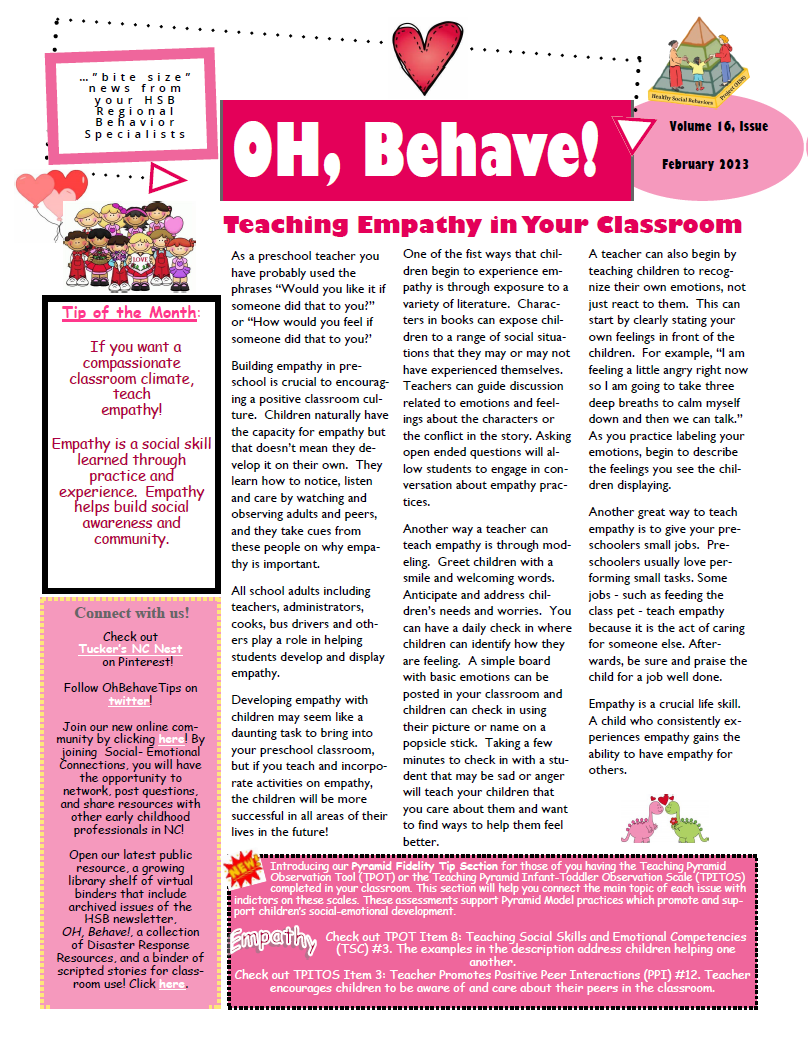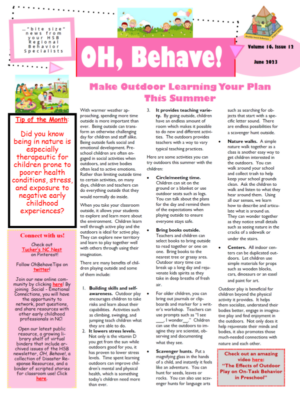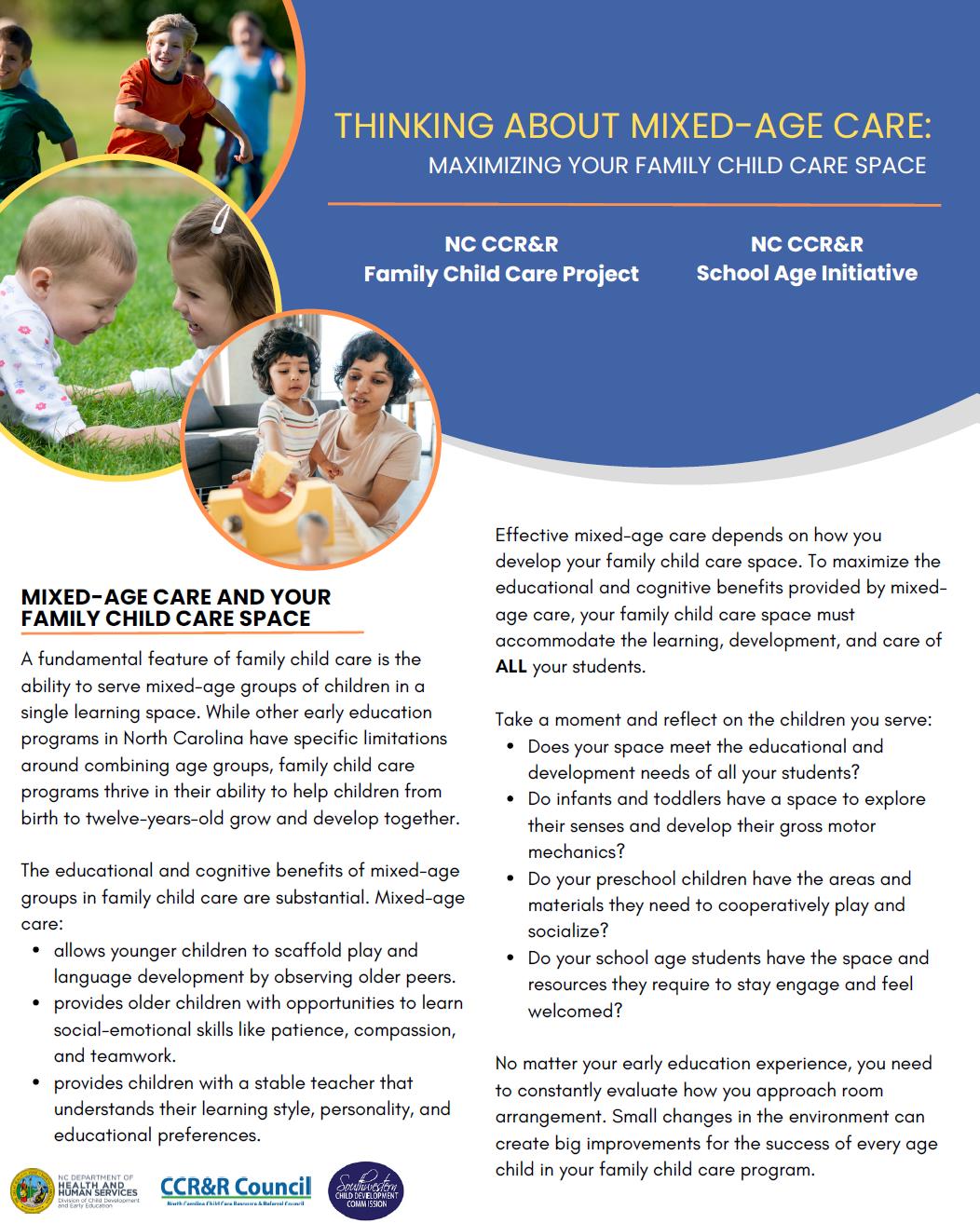The NC Birth-to-Three Quality Initiative (B-3QI) is pleased to share our quarterly newsletter to provide relevant information to birth-to-three teachers and administrators committed to high-quality care and education.
Audience Category: For Child Care Providers
Ut enim ad minim veniam, quis nostrud exercitation ullamco laboris nisi ut aliquip ex ea commodo consequat.
Oh Behave! Bite Size Bits About Biting – July 2023
Oh Behave! Garnering Support for Your Teachers – May 2023
Oh Behave! Teaching Empathy in Your Classroom – February 2023
What Type of Learner Are You?
Understanding learning styles can help us to better support our children as they learn.
Early Intervention & Equity
What you should know about early intervention and equity
Professional Growth with PBC
Through our project’s unique Professional Growth & Development Plan, the NC Birth-to-Three Quality Initiative (B-3QI) aims to reconnect our skilled providers with the personal meaning behind their professional growth.
June 2023 “Oh Behave” – Healthy Social Behaviors Newsletter
Why Questions Matter: NC School Age Initiative
Thinking About Mixed-Age Care Resource Guide
Effective mixed-age care depends on how you develop your family child care space. To maximize the educational and cognitive benefits provided by mixed- age care, your family child care space must accommodate the learning, development, and care of ALL of your students.

